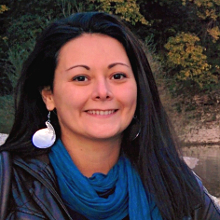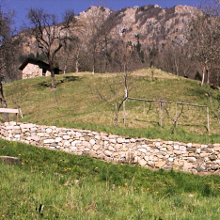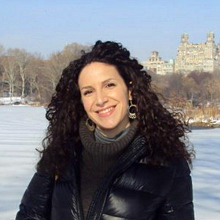History
Enrolment until 2024/2025
The following documents show what students think of their courses; you will not only find their opinions on academics and teaching staff but also on student services, the organisation of the course and the teaching equipment. Opinions are gathered through an online survey that all registered students fill in at the end of every module.
|
|
Survey evaluating teaching quality of the degree course [ITA] | 145 KB |
|
|
Survey evaluating teaching quality and student services at the University [ITA] | 119 KB |
A survey explaining the reasons why bachelor and masters students at Ca’ Foscari chose to study here.
|
|
Student survey [ITA] | 471 KB |
Read the opinions of employers and students at Ca’ Foscari at the end of their work placement. You will find information and interesting advice on how to get the most out of your experience.
On the occasion of the celebrations for the first five years since the establishment of the degree award "Giuseppe Del Torre", the winners of the 2015 edition illustrated their study, working and personal experience during and after the graduation. Four short autobiographies emerged and show how diverse the students’ experience may be during and after getting their degree in History.

To talk about my final dissertation I have to talk about my university experience between Venice and the United Kingdom. I took advantage of all the international exchange programmes that were available to me: I started with an Erasmus exchange in London in 2006-2007 to work on my Bachelor thesis. I attended courses at the UCL where I discovered what became the topic of my Master’s final dissertation: British foreign policy from 1945. I had to travel across the United Kingdom to access archives, so I applied to Erasmus Placement, an exchange programme that enables researchers to intern across Europe.
When I applied I was the only one who was enrolled in a Department of Humanities. The University of Saint Andrews offered me to work in their department. It was rather unusual as it was not a typical placement in a company. Maybe it is because I was the only one coming from a department of humanities that I was able to leave.
Once I graduated in 2009 I wanted to pursue my education. During the previous 5 years I did one thing and one thing only: study. 5 years later I held a degree, and a new world opened to me: what about now? Nothing much happened at the time. I went back to Scotland for 6 months. I applied to many doctoral programmes, but I always ranked first among the PhD candidates without a grant - which was not an option for me as my doctoral project implied to travel a lot which obviously required funding.
I came back to my family’s village near Verona and I kept sending my resume to many different places. In June I had an interview in a private junior high school and in September I was hired. I was dismayed initially as I really wanted to pursue my education. If anyone had asked me if I wanted to become a teacher I would have replied absolutely not. But within a couple of months I realized that I did not want to leave because I felt in the right place. I didn’t think teaching would suit me and especially to junior high school students. And yet after a couple of months I realized that it was truly my calling. It’s been 4 and a half years and I’m still there and happy.

I graduated in 2011 with a thesis on eviction in Venice in the 20th century (“Battaglie vinte tante, ma la guerra persa”). I chose this theme while living in this city. Living in Venice for four years was both a beautiful and a dramatic experience. I met many people who fought for their rights to housing in the 1970s and 1980s. I think that it is important to adapt your research to your own experience.
I do not live in Venice anymore. I left for the mountains two years ago and now I live in Dordolla, a village of 45 inhabitants. I arrived there by accident and I decided to stay because it is beautiful but mostly because it is the only village in the valley whose population is increasing. People keep coming here to start community based projects.
I arrived to do agriculture volunteer work in a farm managed by a German owner. I met English people, including a director who is working on a film about living on abandoned land. I am helping him with demographic and historical research of the use of land in relations to emigration. We are a small but very active community. We were discovered by the geography department of the Universities of Padua and Innsbruck and became a case study.
I decided to focus on landscape and more specifically on drywalls and terrace cultivation. I became part of the International Alliance for Terraced Landscape which promotes this culture and its traditional building knowhow in order to restore what had been built but also to keep the land alive - including in the mountains those parcels located between ski resorts and the cities. That is how I learnt how to build drywalls where I live and in other valleys in the Friuli region. I am now trying to develop cultural projects and training programmes.

I graduated in 2010 with a thesis on a Monastery in Venice - Santa Maria delle Vergini - and how it dealt with a religious reform between 1519 and 1525. In that Augustinian monasteries the nuns were of noble bearing and kept an active secular life - how they went outside the doors of the monastery, how they dressed…
This was widely tolerated until Patriarch Antonio Contarini was appointed and decided to impose a stricter approach to religion - including the vow of chastity, poverty and seclusion for the nuns. In a diary written by the nuns this is described as extremely unfair.
My research was spent mainly in the archives: of the Venetian church, of the Vatican and of the Library of Museo Correr - where I found that wonderful diary filled with beautiful miniatures.
Once I graduated I returned home in Lombardy and sent my resume around. I was called by an engineering company that deals with electric installations. I was initially offered an administrative position but six months later I started working in quality management with a permanent contract.
Quality management is a great field for those who work in humanities: many of my colleagues graduated in History, Humanities or Philosophy. In this field those with a background in humanities have a leg up on others. It then requires a rather tedious training but then its application is extremely interesting, useful and logical.
The company I work for projects extremely large electric installations. We are currently working for the Great Mosque and the Centre Internationale de Conférences in Algiers and we worked for the Sheraton Hotel in Oran for instance. Throughout the completion of the project I must help the project manager and make sure that all the required documents have been requested to obtain the certification and to keep track of the processes - that must be properly archived.
I also travel a lot. I enjoy my job very much and I would have never imagine working in such a field and for a company that does things that are quiet obscure to me!